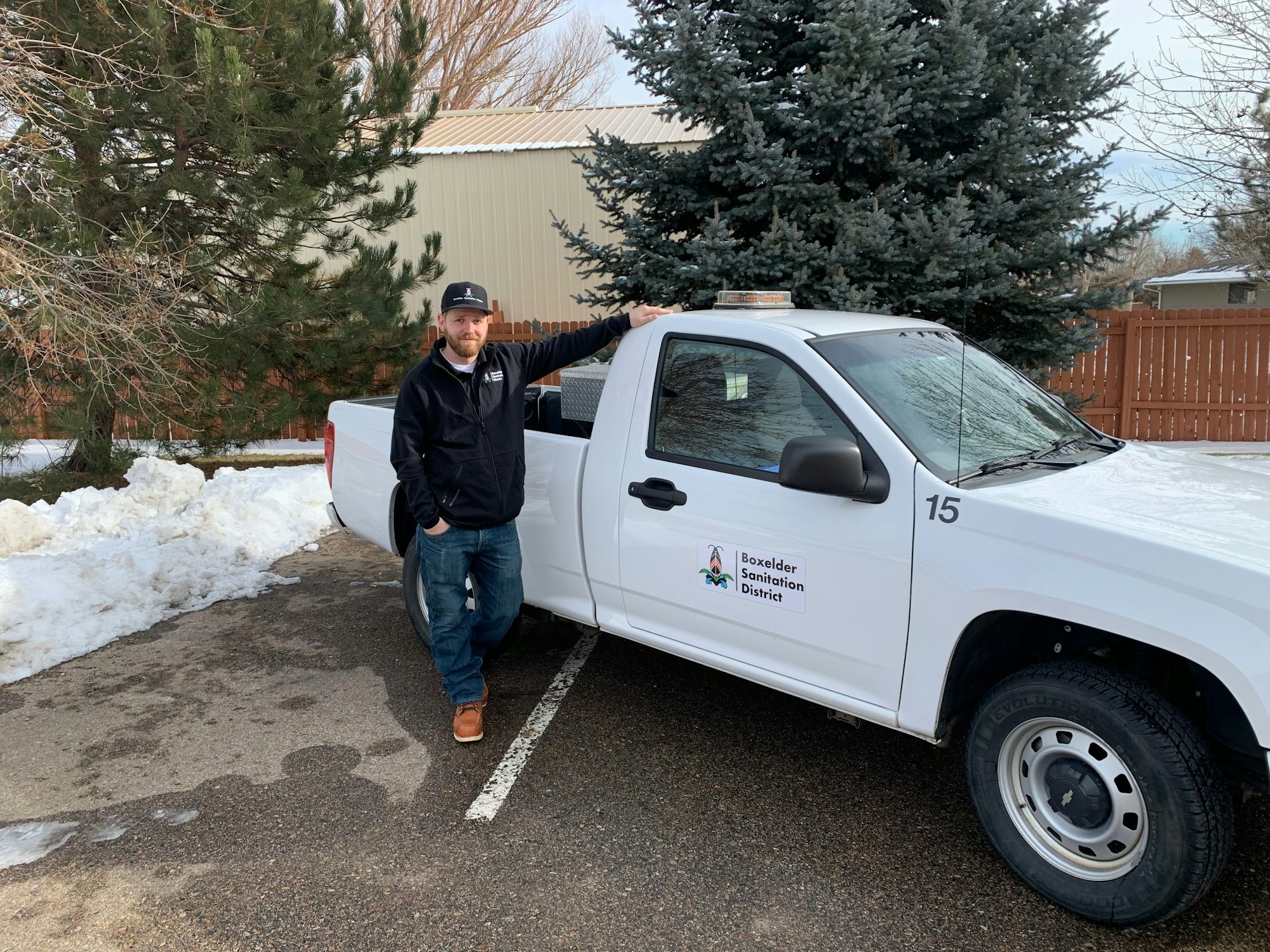Dec. 1, 2024 - Understanding Pretreatment and Environmental Stewardship in Wastewater Management
Boxelder Sanitation District proudly serves nearly 8,000 residential customers and more than 700 commercial and industrial customers. Our dedicated pretreatment department works with these businesses to ensure compliance with EPA regulations, safeguarding our wastewater treatment process from potentially harmful discharges.
As the local pretreatment control authority, we play a crucial role in maintaining clean, efficient wastewater systems for our community. In this blog post, we'll provide an overview of pretreatment, what it means to be the local authority, share more about the pretreatment process and how our commercial and industrial customers can support environmental stewardship.
What is Pretreatment?
Let’s start with the basics of pretreatment. Pretreatment is a regulatory requirement designed to protect our Publicly Owned Treatment Works (POTWs), ensuring that harmful pollutants don’t enter the public wastewater system. This program, mandated nationally by the U.S. Environmental Protection Agency (EPA), requires certain businesses and industries to treat wastewater before it reaches the municipal sewer system.

At its core, the pretreatment program has four key objectives:
- Preventing the pass-through of pollutants that may escape treatment and enter local water bodies.
- Preventing interference with or upset to wastewater treatment plant operations.
- Preventing contamination of biosolids, the organic material that results from wastewater treatment.
- Ensuring worker health and safety by limiting exposure to hazardous materials.
Some of the pretreatment requirements include:
- Prohibited discharge standards: These limit the discharge of materials like excessive heat, corrosive wastes or large quantities of oil and grease into the sewer system.
- Categorical pretreatment standards: Specific industries, such as metal finishing or pharmaceutical manufacturing, are held to strict EPA-mandated limits on pollutants they can discharge.
- Local limits: Depending on our community's needs, we may set even stricter standards than the EPA.
What It Means to Be the Local Authority in Pretreatment
In some states, the EPA oversees all pretreatment. However, in Colorado and 30 other states, special districts can apply to become local control authorities, and the EPA approves them to oversee pretreatment within their jurisdiction. The benefit to Boxelder of being the local authority is that we can be much more efficient. We don’t have to wait for the EPA to implement and follow up with all regulations in our region because we oversee that ourselves. Boxelder gets to administer our pretreatment program, decide how to staff it, how to fund it, apply local guidelines and apply our knowledge of all the federal regulations.
Within our boundaries, we work closely with businesses and industries to ensure compliance with federal, state and local pretreatment regulations. Our efforts not only protect our infrastructure and workers but also help maintain the quality of the natural environment surrounding our community.
Currently, Kevin Schmitz leads our pretreatment program. He completes the annual inspections of all permitted facilities, creates reports and stays up to date with regulations.
“A large portion of our pretreatment program is for us to visit new and existing industrial entities, understand what they’re doing and make sure the entity is aware of and adhering to the regulations,” Brian Zick, Boxelder District Manager, explained. “For example, in our district, there are a lot of small breweries. While breweries are not industrial entities, some aspects of the brewing process can have an impact on our wastewater treatment plant, such as pH levels and water temperature. Recently, we saw some pH spikes at the Boxelder treatment plant that we thought might have come from a brewery cleaning their tank. The breweries in our District are great partners in environmental stewardship and when we talked to them about the changes we were seeing on our end, they were very receptive to the best management practices that we suggested.”
This is an excellent example of how, as the local pretreatment control authority, we can build relationships, provide valuable education and collaborate with regional industries to protect the Poudre River
Who is Required to Pretreat?
Domestic wastewater from homes is typically straightforward and doesn’t require pretreating. However, pretreating regulations do apply to businesses and industrial facilities.
Breweries, manufacturing plants, metal finishing plants and commercial kitchens are some examples of industrial and commercial users in our area requiring pretreatment.
The Pretreatment Process
For businesses and industries, the pretreatment process starts with identification. We work with industrial users to determine whether pretreatment measures are necessary. Here's how the process works:
- Identification: We identify possible industrial users by conducting industrial waste questionnaires, which help us understand new businesses and their wastewater characteristics. It’s a bit like detective work because we’re keeping a pulse on industrial users, introducing ourselves, providing resources and asking the right questions to gain useful information. The questionnaire helps users identify any of their processes that could cause problems down the line at our wastewater treatment plant and beyond.
- Self-monitoring reports: Industrial users must regularly report on their wastewater quality, allowing us to track compliance with discharge limits.
- Sampling and inspections: Our team conducts periodic sampling and inspections to ensure standards are being met.
- Enforcement procedures: If an industrial user is found in violation of the pretreatment regulations, we have enforcement mechanisms in place to address and correct the issue.
- Annual reporting: We submit yearly reporting to the EPA with our findings.
Environmental Stewardship and Pretreatment
At the end of the day, pretreatment isn’t about making our lives easier at Boxelder. It’s about environmental stewardship. Our wastewater treatment plant can operate at its best when specific contaminants are removed from wastewater before it hits our treatment plant. Water that goes through our treatment plant ends up in the Poudre River and continues downstream. Collaborating with our industrial users ensures our output is the highest quality possible. We’re very thankful to the businesses and industries in our district for being good partners and taking their role seriously, just as we take our role seriously as the local pretreatment authority.
